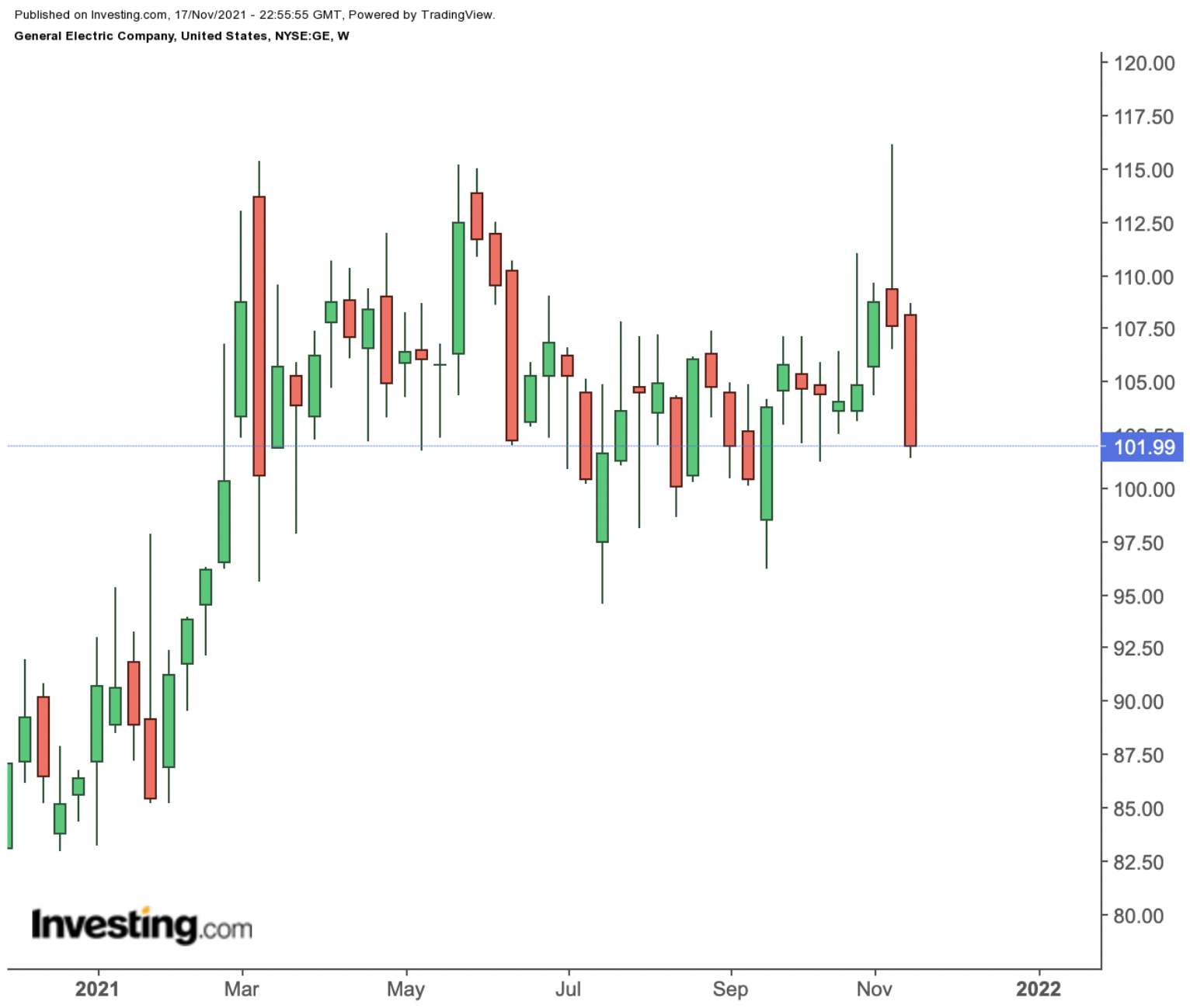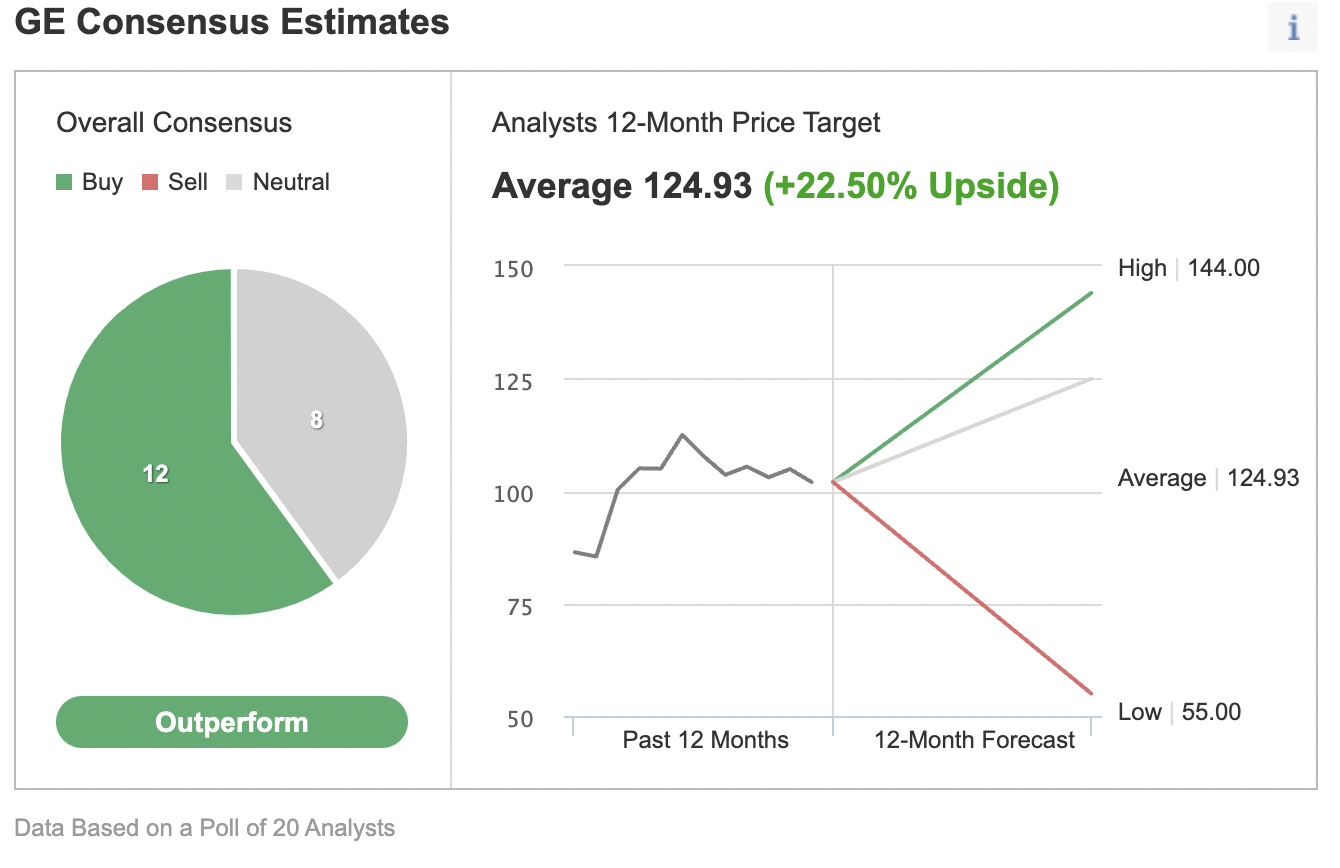After years of corporate decline and its stock underperformance, General Electric (NYSE:GE) has finally played its best card in order to win back investor confidence.
The 129 year-old Boston-based industrial conglomerate, which is in the middle of a turnaround, announced last week that it plans to split into three public companies, encompassing its healthcare, aviation and energy businesses, as part of a breakup that will unlock value for its shareholders.
GE will spin off its healthcare business in early 2023 and combine its renewable energy, fossil fuel power and digital units into a single, energy-focused entity that will be spun off a year later. The remaining business will form GE Aviation, its jet-engine division.
Chief Executive Officer Larry Culp, who took the helm in 2018 to transform the struggling industrial giant, called the announcement a “defining moment” for GE.
Culp, during the past three years, bolstered the company’s cash flows by selling major businesses, which included a $30-billion deal to sell its jet-leasing business. Its biotech business was purchased by Danaher (NYSE:DHR) in a $21-billion deal, and the sale of the bulk of the GE Capital finance arm was brokered before Culp's tenure as CEO.
GE shares closed Wednesday at $101.99. The stock price, adjusting for the split, is little changed from where it was when Culp took over in October 2018, compared with a roughly 60% gain in the S&P 500 index. Existing GE shareholders will receive new shares in the two companies after they are spun off.

A Clear Rationale
Some of GE’s largest investors are favoring this latest move, which could be the final act in dismantling the conglomerate that was the world’s largest company 20 years ago, with a market capitalization at that time of $401 billion.
In a statement, Trian Fund Management, the activist fund led by Nelson Peltz that amassed a $2.5-billion stake in GE in 2015, said:
“The strategic rationale is clear: three well-capitalized, industry leading public companies, each with deeper operational focus and accountability, greater strategic flexibility and tailored capital allocation decisions.”
The energy unit holding GE’s renewable and fossil-power businesses should achieve mid- to high-single-digit margins even with low rates of growth. GE Aviation’s margins could reach 20%, according to GE’s investor presentation.
Analysts, on the other hand, give a favorable rating to GE stock, which has so far failed to live up this development. Of 20 analysts, surveyed by Investing.com, 12 have an “outperform” rating on the stock, with the 12-month consensus price target reflecting a more than 22% upside.

Chart: Investing.com
Deane Dray, an analyst with RBC Capital Markets, said in a note last week that the breakup could generate 20% upside to GE’s current share price, and the move will help management to unlock an “attractive” value for GE shareholders. His note added:
“We are fans of the plan and believe the company is embarking on the three-way separation from a position of strength.”
Bottom Line
GE stock may not show much positive momentum in the near-term as both retail and institutional investors remain focused on tech high-flyers or meme stocks. The complex turnaround story that GE has become is, in comparison, simply less enticing.
But for long-term investors, GE’s latest move represents a good buying opportunity now that the company has settled on a plan to take advantage of its leading market position, especially in healthcare and aviation. For such investors, building up a gradual position in GE stock, with a three-to-five-year horizon, could prove to be a productive move in our view.
